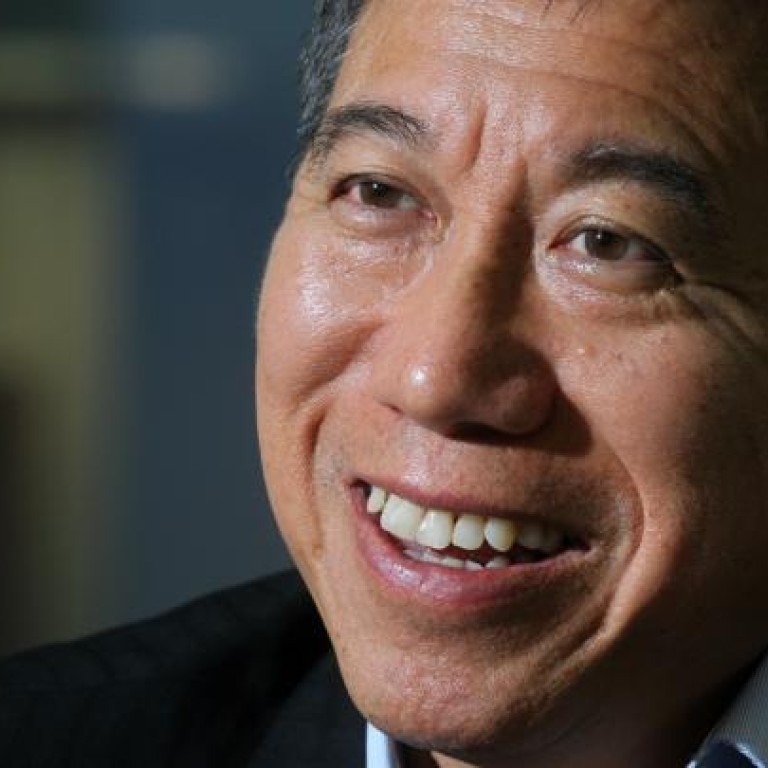
TVB shelves HK$50m plan for international channel
Fears of rising competition for advertising due to rival applications for free-television licences lead to ambitious scheme being put on hold
TVB has shelved a plan to launch an international English channel in the face of uncertainties in the free-television market, group general manager Mark Lee Po-on has revealed.
Over the past six months, the television station has held internal discussions on launching a satellite channel to target English-speaking Chinese around the world, Lee told the .
The project was to have been an "international version of the Pearl channel" broadcasting to the United States, Canada, Australia, Europe, Singapore and Malaysia, he said.
TVB estimated it would cost HK$50 million to set up and expected the operation to break even after three years.
"Now we will have to reconsider the plan," he said. "We cannot guarantee that the business environment [for domestic free television] will remain stable."
According to the initial plan, the new channel was to focus primarily on news broadcasts.
It would also serve as a platform to promote aspects of Chinese culture such as kung fu and tai chi, and to introduce Hong Kong through travel programmes. Lee said an English channel, rather than a Cantonese one, could appeal more to the offspring of Chinese emigrants living in the target destinations, who tended to communicate primarily in English.
TVB had aimed to hire 50 people to run the channel, he said.
But Lee said the potential emergence of more free-television rivals had changed matters.
City Telecom, PCCW and i-Cable applied for new licences three years ago. Last year the-then Broadcasting Authority recommended all three be granted licences, but the Executive Council has yet to give its approval.
If the government approves the three applications, TVB argues, the resulting intense competition for TV advertising revenue will eventually drive some operators out of business.
The station decided to take a cautious approach by shelving the new channel, which it expected to boost long-term growth but would not create quick profits.
Meanwhile, it has prepared for the possibility of taking its plea over the new licences to the courts. "TVB is very efficient. We are quite prepared," Lee said. In an earlier letter to lawmakers, executive councillors and the Communications Authority, TVB challenged the legitimacy of issuing new free-television licences before those of TVB and ATV end in 2015.
The letter demanded that the authorities reveal how many new licences they intend to give out and the mechanism behind their application assessment.
City Telecom chairman Ricky Wong Wai-kay has said a judicial review would be an option if he failed to get a licence. To that, Lee said: "It is OK for anyone to fight for their rights with legal action in a civil society."

